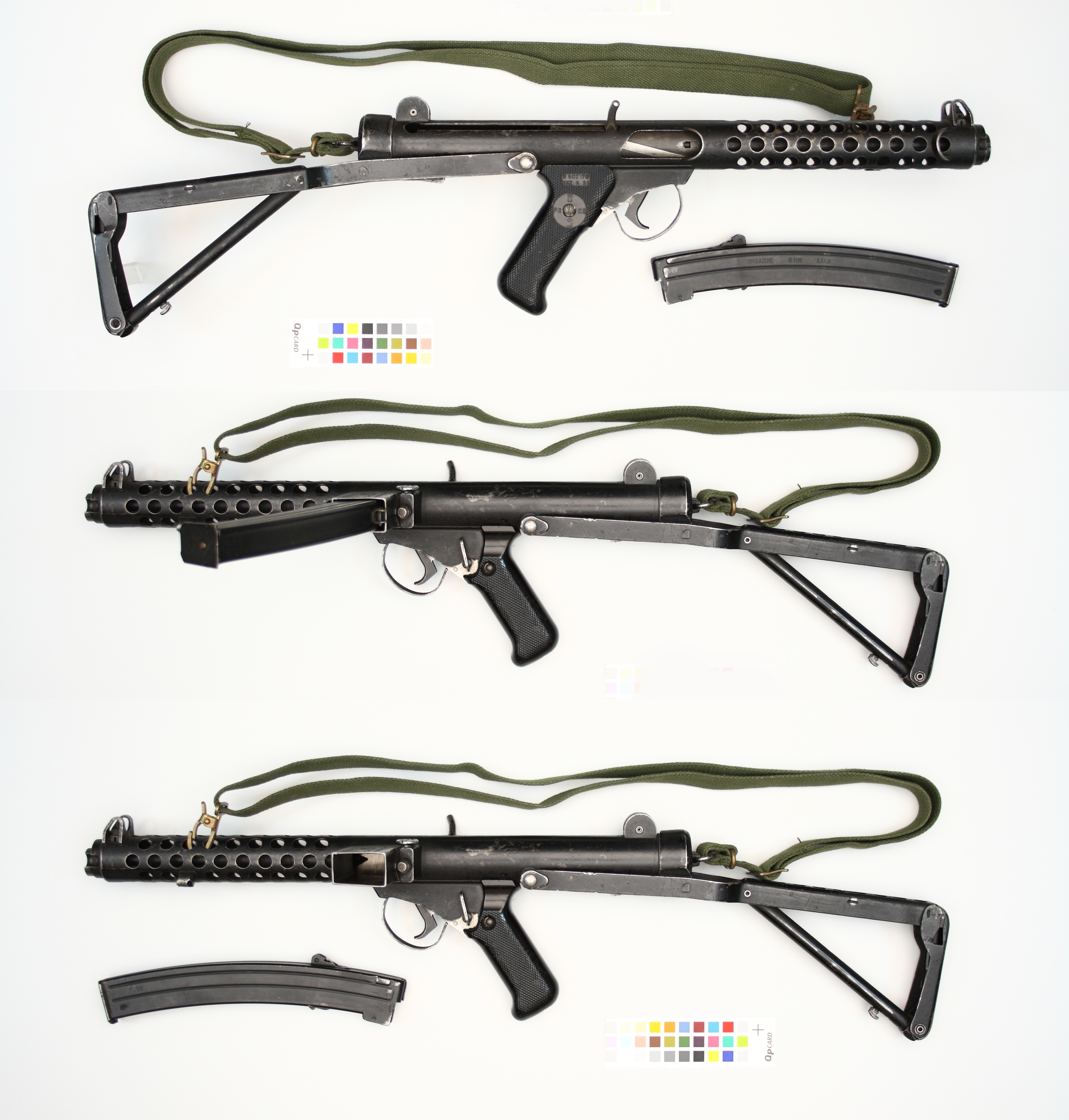
In 1944 the British General Staff issued a specification for a new submachine gun. It stated that the weapon should not weigh more than six pounds (2.7 kg), should fire 9x19mm Parabellum calibre ammunition, have a rate of fire of no more than 500 rounds per minute and be sufficiently accurate to allow five single shots to be fired into a one foot square target at 100 yards To meet the new requirement, Mr G. W. Patchett, the chief designer at the Sterling Armaments Company of Dagenham submitted a sample weapon of new design in early 1944. The army quickly recognised its potential and ordered 120 examples for trials. Towards the end of the Second World War, some of these trial samples were used in combat by airborne troops at Arnhem and elsewhere, where it was known as the Patchett submachine gun. The decision was made in 1951 for the British Army to adopt it. It started to replace the Sten in 1953 as the Sub-Machine Gun L2A1. Its last non-suppressed variation was the L2A3, but the model changes were minimal throughout its development life. NZ stampings suggest this example may have seen service in New Zealand.
Marks and Stamps: (Top of mag housing) STERLING SMG 9m/m MK 4 (L2A3) No KR 25828 N(arrow)Z 604 (Underside of Mag housing) STERLING PATENT NOS 559469 ?89875 579660 ?????? IN UK AND CORRESPONDING illegible (R side of grip) 9 602 178 HX2 S 57 FREE/LOCK (Magazine) MAGAZINE 9MM L.1.A.2 960-0039 (Underside) RL 58| Accession Number: 161 | Period of Use: 1956-2000 |
| Type: Machine pistol/SMG | War Zones: |
| Country of Origin: UK | Type Date: 1956 |
| Manufacturer: Sterling Armaments Company, Dagenham | Serial Number: KR 25828 |
| Manufacture Date: Unknown | Calibre/Ammunition: 9mm Parabellum |
| Weight: 2700g | Length Overall: 686mm |
| Cyclic Rate: 550rpm | Length Barrel: 196mm |
| Deactivation Certificate Number: DA 18741 |